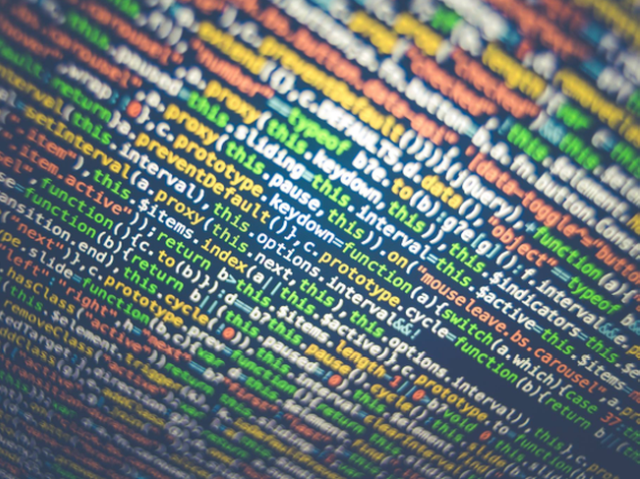Cyber hygiene in Romania
Cyber security during the COVID-19 pandemic

Corina Cristea, 19.06.2020, 13:00
The
concept of cyber hygiene is relatively new in Romania. It defines a series of
measures every PC user needs to take in order to be protected in the virtual
space. Such measures are all the more necessary since the use of the Internet
has been significantly growing during the COVID-19 pandemic. A great many
companies had no choice other than shift their working procedures to
teleworking, with little, if any, time to make sure the required security
measures are up to the mark. And that prompted them to be more susceptible to
such attacks, since their employees need to log on to the companies’ resources
using their own computers at home, which more often than not are connected to
networks with minimum protection. As remote working continues, employees ought
to take additional security measures, beginning with the creation of a strong
password for their remote work instruments or at least that is what a couple
of IT professionals working with Kaspersky say. Kaspersky is a global cyber
security company founded 23 years ago. At present, Kaspersky provides security
for more than 400 million individual users and 270,000 client companies. Each
time users log on to their corporate networks from home, no matter what
instruments are used, specialists recommend users to take a series of measures.
Among them, the use of different and strong passwords to access the resources
of the company, updating all software programmes installed on their computers,
using the most recent version of such programmes. Encrypting is also
recommended, in the case of computers used for work purposes, as well as making
backup copies for the critical data. An analysis carried by Kaspersky has
revealed that all told, the brute force-type cyber attacks perpetrated in
quarantined countries have reached the number of 100 million, or thereabouts, in
March this year, that is three times as many attacks as compared to data
reported for the month of February, which means that such attacks have
intensified since the outbreak of the COVID-19 pandemic. Brute force cyber
attacks are actually attempts to detect the username and the password for RDP,
which is one of the most familiar remote access tool for the working stations
or servers. In such attacks, several options are randomly tested, until the
right combination is discovered. Once the remote access is secured for the
targeted computer in the network, the attacker can do almost anything with the
computer, from spying to the stealing of information.
Cyber-attacks
are sure to intensify in the coming period, Dan Cimpean, General Director at
Romanian National Computer Security Incident Response Team CERT-RO has told Radio
Romania. During the pandemic, the nature and level of sophistication of such
attacks have changed. Moreover, cyber crime networks and state actors perpetrate
their attacks in new versions.
Dan Cimpean:
Because of the coronavirus, we have all started to work as mere
users, we have been working from home to a greater extent than before. We use
computers and applications, more and more, we use the Internet. The number of
attacks is expected to progress accordingly, it won’t be on the wane. Attacks
will intensify, will become more diversified in scope, in the level of
sophistication, of complexity, plus the fact that the response they get from
everybody will be a little bit different as compared to what had happened
before.
Dan
Cîmpean advocates the idea of a cyber protection officer to be employed in
institutions and organizations. Their role should be that of a cyber security
contact, just as it happens in the case of personal data protection.
Mihai
Rotariu is the spokesperson for CERT-RO. Mr Rotariu gave specific examples of
recent cyber-attacks, which are tantamount to perpetrating crimes of attempted
fraud for companies in Romania.
Mihai Rotariu:
One of the methods was the e-mail spoofing, which actually means forging
the return address for the sent email messages to conceal the identity of the
real address the message came from. Companies need to have a clear-cut security
policy, a clear checking procedure must be in place for the legitimacy of the
prices required via e-mail and, obviously, a set of rules will have to be put
in place, so that attempted fraud may be reported. And, as employers, we must
carefully check the e-mail addresses where such demands have been sent from, we
should never open suspicious links or attachments and we must also be extremely
cautious, restricting info posted on social networks about the company.
We
cannot deny the COVID-19 crisis has had its impact on us all, as individuals,
on the society, on the institutions. The crisis a stark reminder of how strong
our dependence on the digital domain is. Because of that, we need to aware of
the fact that the number of cyber threats for those who work on a computer is
on the rise, or at least that is what those with The National Computer Security
Incident Response Team emphasized. The more we use the digital technology, the
more exposed we are. Besides, we need to be able to understand the threats, we
must take primary cyber hygiene measures, we should not forget the rules, we
need to be open and learn extensively. Specialists also say we should not get
stuck up in a mindset having to do with technologies that used to be
operational in the past, we must accept, we must embrace the digital progress.
Specialists estimate an acceleration as regards digital transformation. The new
technologies will be very quick to appear, they will be used by everybody, by
people of all walks of life, of all age brackets. Whether they are citizens or
public bodies, the speed of change is there for them all, we have seen it
already and we need to learn how to live with it.
( Translation by Eugen Nasta)





























